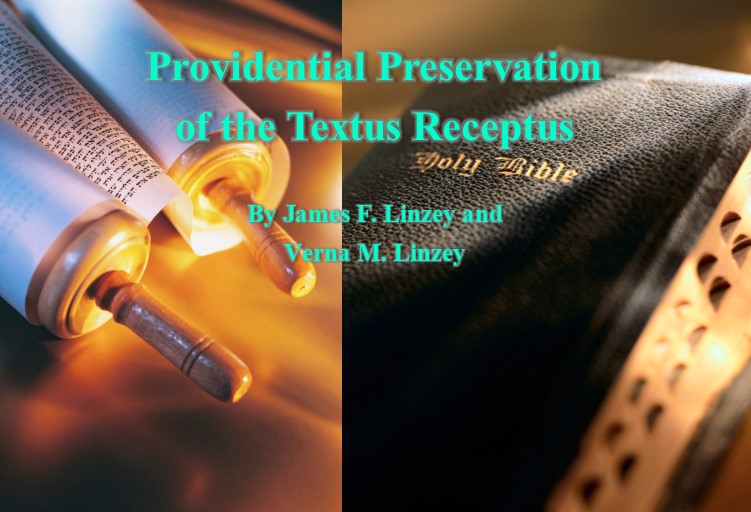Providential Preservation of the Textus Receptus
The mother and son Bible translator team of Verna and James Linzey discuss how God has preserved his Word through the centuries and how this relates to the many ancient documents upon which the canon is based and the collections of these large and small manuscripts such as the Textus Receptus.

It has been said by theologians and scholars that we have the Textus Receptus (TR) today due to God’s providential preservation of His Scriptures. The doctrine of providential preservation was articulated in 1646 after the English Parliament commissioned the Westminster Confession of Faith to be drawn up. The Westminster Confession of Faith, chapter 1, paragraph VIII, states:
The Old Testament in Hebrew, which was the native language of the people of God of old, and the New Testament in Greek, which at the time of the writing of it was most generally known to the nations, being immediately inspired by God and by His singular care and providence kept pure in all ages, are therefore authentical; so as, in all controversies of religion, the Church is finally to appeal unto them.
Although Desiderius Erasmus printed the first Greek New Testament based on the Byzantine manuscripts available to him in 1516, and Robert Estienne provided a critical apparatus of the Greek variants with his printed edition of the Erasmus edition in 1550, it was the Elzevier edition in 1633 that popularized the Erasmus/Estienne edition as the Textus Receptus. The TR (nunc ab omnibus receptum “now received by all”) was based on the Byzantine manuscripts, and although not identical and differing in some 1,838 places,[1] the TR is based on the majority of Greek NT manuscripts from this Byzantine tradition. In 1646 the English Parliament knew only of the TR tradition over and against the Latin Vulgate. But can the question of the providential preservation of Scripture pertain only to the TR and not to all the Greek, Hebrew, and Aramaic texts and fragments?
We can thank God for fulfilling His inerrant, inspired, and infallible promises to preserve His Word throughout the ages.
Category: Biblical Studies, Winter 2019


